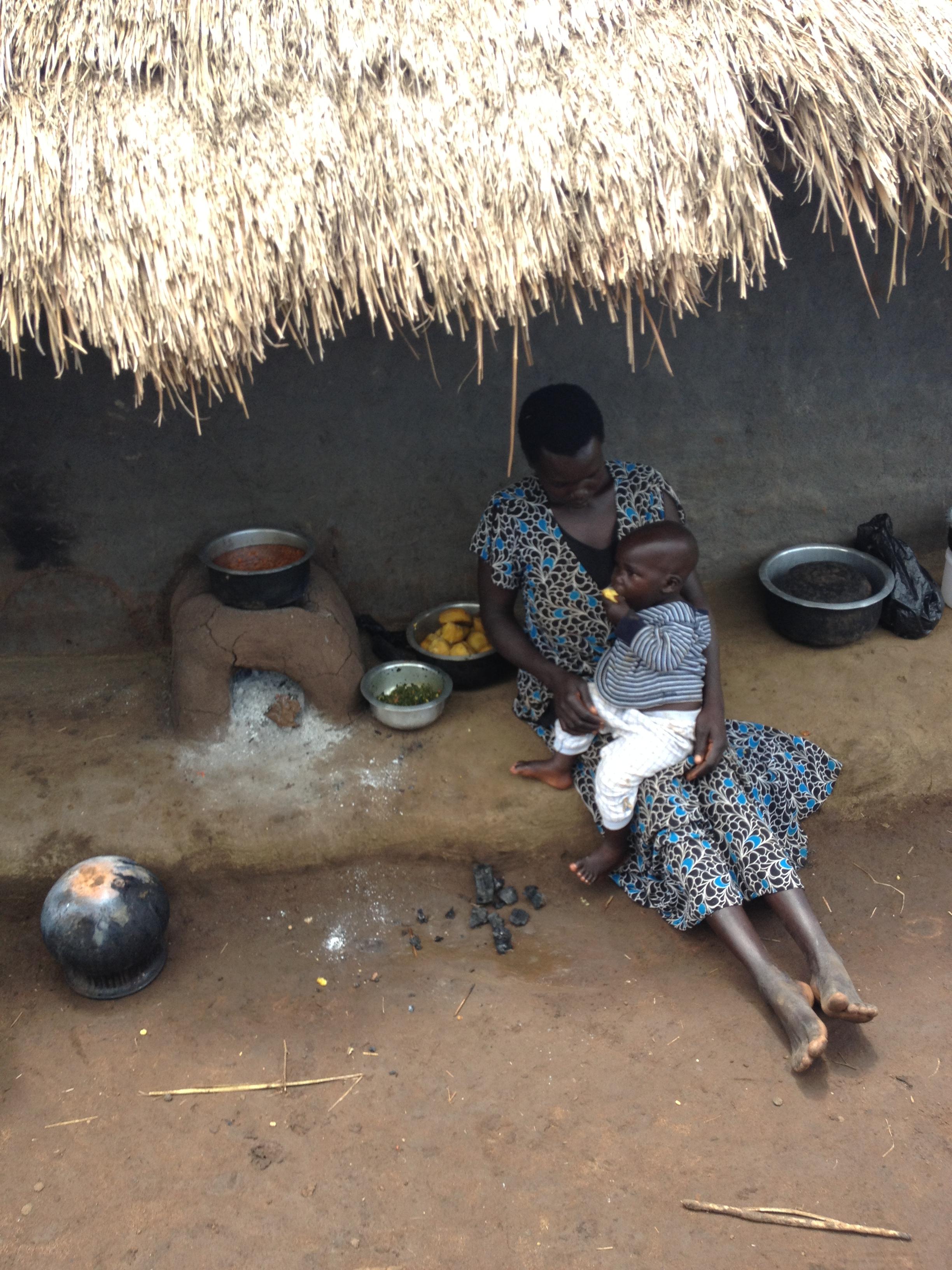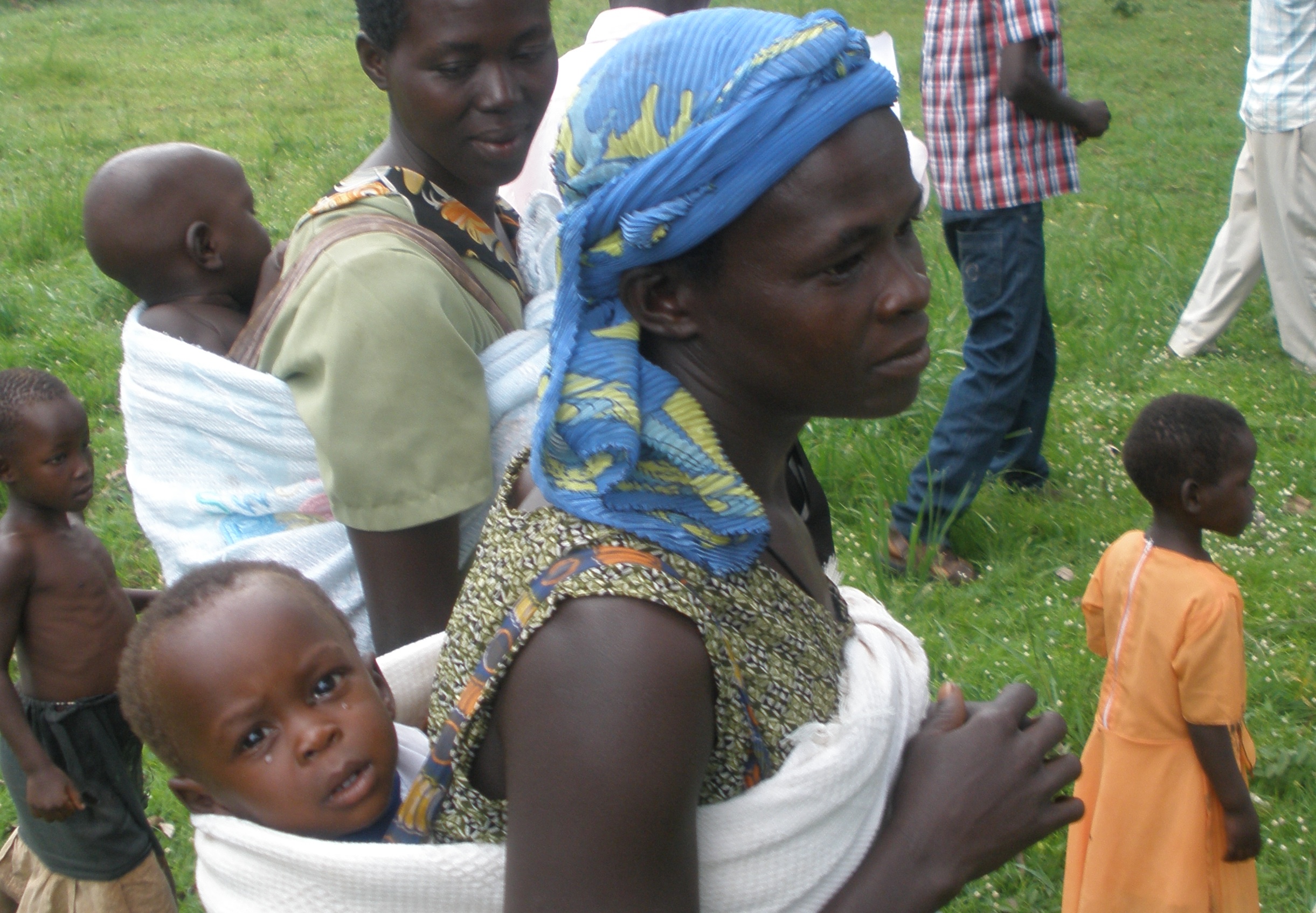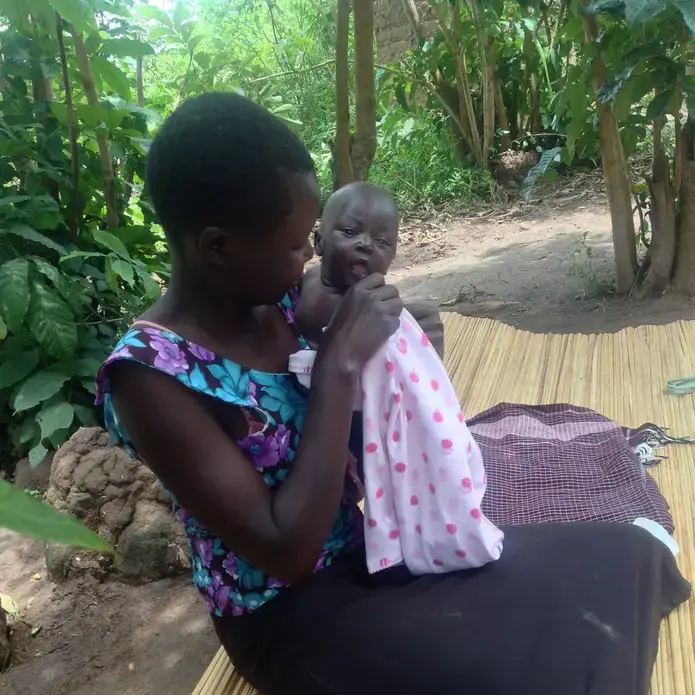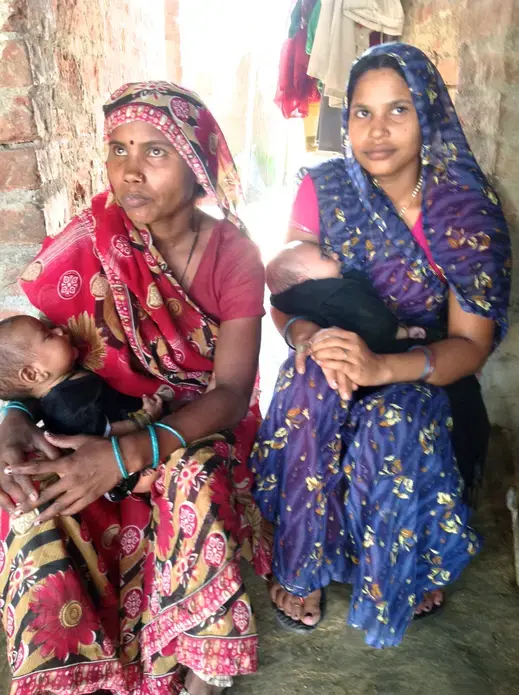In the rural Indian village of Barjor Khera, Seema Kumar cradled her two month old daughter, Deepansi, in her arms. It was time to dream of the future.
"I wish for her a good education and a good job," Seema said. "And a good marriage."
Seema's sister-in-law and neighbor, Sanju Kumar, sat beside her on the crude stoop between their humble houses. Her son, Adarsh, was born 13 days after Deepansi. "I want him to be a wise person," she said. "He will need a good education."
Neither of the mothers had ever gone to school. Both illiterate, they treasure education for their children.
In another rural village, in northern Uganda, another mom dreams big. "I want him to be a businessman," Esther Okwir said about her 10-week old son Rodgers. They were sitting on a thatched mat under a shade tree behind their house in the village of Barjwinya. It was a cool, quiet place for breastfeeding and mother-child bonding. "If he gets the education, he can be a manager, an accountant," Esther continued.
A hemisphere away, in Guatemala's Palajunoj Valley, Maria Delfina Camacho envisioned her one month old son Jose getting the education she never did; she only made it to sixth grade. "I wanted to go further," she said. "But I couldn't." Jose will, she hopes; it will be his way out of the valley.
On Chicago's south side, Jessica Saldana admired her six-day-old daughter, Alitzel, who was sleeping in her arms. "I see her being an honor student. I see her playing sports like me," Jessica said. "And there will be music in her life, maybe playing the violin."
The dreams of new mothers are similar all around the world. Some of the details may vary at the edges, but at the center is a good education.
And critical to a good education is good nutrition, particularly in the 1,000 days from the time a woman becomes pregnant through the child's second birthday. Brain development in this time is rapid, fueled by valuable micronutrients. Any nutritional deficiencies — either from lack of food or a bad diet, or from parasites which deprive the body of the nutrients — delay the brain's development, sometimes irreparably. It is in the first two years of life when stunting begins, impeding a child's ability to reach his or her full physical and mental potential. This brief period can determine a child's future performance in school, and, by extension, future employment and earnings.
"We've got a lot of very good evidence now that shows that kids who are undernourished in the first 1,000 days perform much more poorly in school, they're more likely to drop out earlier," John Hoddinott, senior researcher at the International Food Policy Research Institute, recently told National Public Radio. "When they're given tests of cognitive ability, of non-cognitive skills, they perform less well on those two." The consequences, he added in the interview, are clear: "Better educated people are more productive, more productive people earn higher wages, people with higher wages earn higher incomes."
Peter Orazem, professor of economics at Iowa State University, asks in his research, "Specifically in my area of education, why do I care about something that's going to improve the quality of secondary education if the kids are stunted physically and mentally before they even start school? Malnutrition before age five permanently harms brain development and earnings for a lifetime…That's why these nutrients are so important."
Hoddinott and Orazem were contributors supporting the findings of the Copenhagen Consensus, an international group of economists and big thinkers who concluded that advances in conquering malnutrition, particularly early in life, would have the greatest impact on improving the state of the world.
These advances — be they biofortification of staple crops with iron and Vitamin A (in Uganda), behavior change surrounding infant care (in India), better diets and sanitation (in Guatemala), improved access to nutritious foods and early education (in Chicago) — may also have the greatest impact on improving the lives of Deepansi and Ardash and Rodgers and Jose and Alitzel.
And on fulfilling the dreams of their mothers.

Education Resource
Meet the Journalist: Roger Thurow Reports on the 1,000 Days
Good nutrition is vital in the 1,000 Days, the time from when a woman becomes pregnant to the second...










